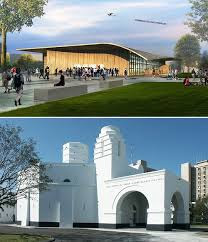FOR THE PLANNING COMMISSION PODCAST
The hour flew by talking about Universal Design and how it delivers dignity for people with disabilities.
I also explained
how Universal Design is the most sustainable, flexible, durable, resilient and cost-effective
approach to the built environment.
The hosts,
Chris Danley and Don Kostelec, really get it. They introduce walkability,
Americans with Disabilities Act compliance and access for all into every
project they work on.
Chris is a
recognized national expert in Walkability and Health Impact Assessments, is
co-creator of the Looking Glass walk audit training academy, crafted the
Activity Connection Plan™ and Healthy Conditions Assessment models.
He has
conducted numerous planning and assessment projects throughout Idaho, North
Carolina, Utah and other states.
He also works with Blue Zones as a subject matter expert in the Built-Environment throughout the United States. inkedin Twitter
Don is a
20-year professional in transportation planning, health analysis and
comprehensive planning.
His work
extends from Alaska to Florida and California to New York, but is focused in
the Intermountain West. He is an avid walker and has been since the age of 1.
Don is known
as a provocative speaker who helps communities better engage the design
profession for more equitable and safer street design that prioritizes the
safety of people over the movement of cars.
Look for the
episode to drop before the end of November at:
https://theplanningcommissionpodcast.com/









